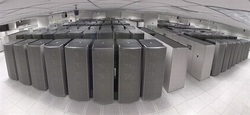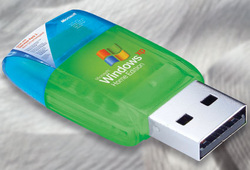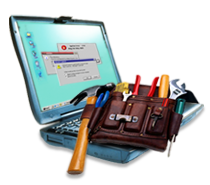- IBM's ASCI white supercomputer, the fastest computer in the world, weighs as much as 17 elephants and can do in one second what a calculator would take 10 million years to do.
- The first computer "bug" was a real bug. In 1947, engineers found a moth in Panel F, Relay #70 of the Harvard Mark 1 system. The computer was running a test of its multiplier and adder when the engineers noticed something was wrong. The moth was trapped, removed and taped into the computer's logbook with the words: "first actual case of a bug being found."
- Mr Tomlinson has been called the father of e-mail because, back in 1971, he invented the software that allowed messages to be sent between computers
- Around 1% of the world's 650 million corporate e-mail accounts are plugged into hardware and software that forwards incoming messages to a mobile device. And about 3.65 million of them use a BlackBerry. An estimated 126 million employees use Microsoft Outlook on desktop.
0 Comments
Copy your current screen for saving or printing. Press Print Screen - this copies the screen to the clipboard. After doing this, use "Paste" into (e.g.) Word to get a copy of what the entire screen looks like including Windows headers etc. You can then print it. Since it is a picture, you can open the picture tool-bar and crop or do other simple edits. You can also paste into a photo editing program like PhotoShop - so no picture can be truly immune from getting a copy on the Internet - that's why people with photos to sell don't put high resolution versions on the internet!
Keyboard Shortcuts - There are many keyboard shortcuts available - the trick is to remember them. Two that I find handy are:
F2 - Rename a file (instead of right click, select Rename, then left click)
F5 - Refresh the screen - sometimes, the screen does not show the results of what you just did - so try pressing F5. For the Internet, you may need to use CTRL F5 to get a refresh.
Link : HERE
Keyboard Shortcuts - There are many keyboard shortcuts available - the trick is to remember them. Two that I find handy are:
F2 - Rename a file (instead of right click, select Rename, then left click)
F5 - Refresh the screen - sometimes, the screen does not show the results of what you just did - so try pressing F5. For the Internet, you may need to use CTRL F5 to get a refresh.
Link : HERE
Adobe - came from name of the river Adobe Creek that ran behind thehouse of founder John Warnock.
Apache - It got its name because its founders got started by applying patches to code written for NCSA's httpd daemon. The result was 'A PAtCHy'server -- thus, the name ApacheApple Computers - favorite fruit of founder Steve Jobs.
CISCO - its not an acronym but the short for San Francisco.
Google - the name started as a jokey boast about the amount of informationthe search-engine would be able to search. It was originally named 'Googol', a word for the number represented by 1 followed by 100 zeros.
Hotmail - Founder Jack Smith got the idea of accessing e-mail via the webfrom a computer anywhere in the world. When Sabeer Bhatia came up withthe business plan for the mail service, he tried all kinds of names ending in 'mail' and finally settled for hotmail as it included the letters "html"
HP - Bill Hewlett and Dave Packard tossed a coin to decide whether thecompany they founded would be called Hewlett-Packard or Packard-Hewlett.
Apache - It got its name because its founders got started by applying patches to code written for NCSA's httpd daemon. The result was 'A PAtCHy'server -- thus, the name ApacheApple Computers - favorite fruit of founder Steve Jobs.
CISCO - its not an acronym but the short for San Francisco.
Google - the name started as a jokey boast about the amount of informationthe search-engine would be able to search. It was originally named 'Googol', a word for the number represented by 1 followed by 100 zeros.
Hotmail - Founder Jack Smith got the idea of accessing e-mail via the webfrom a computer anywhere in the world. When Sabeer Bhatia came up withthe business plan for the mail service, he tried all kinds of names ending in 'mail' and finally settled for hotmail as it included the letters "html"
HP - Bill Hewlett and Dave Packard tossed a coin to decide whether thecompany they founded would be called Hewlett-Packard or Packard-Hewlett.
Before you invest in PC system utilities software, wouldn't you like to know exactly how it would improve your system-or in other words, how much can PC system utilities really speed up PC performance?
I posed this question to Peter Rauholt, the Product Marketing Manager for VCOM. He said that it's not possible to pin down improvement statistics relevant to all PCs since every PC is configured and used differently. But he did say that major performance gains come from defragging your hard drive:
"This gain will vary from nothing (on an already defragged drive) to a significant improvement," said Rauholt, "unfortunately, there are so many variables it's hard to quantify a general improvement."
The good news? Most PC software programs visually show how much your hard drive has improved. My own experience has shown that cleaning up a hard drive that's severely fragmented cuts application load times in half-a noticeable difference.
But I still wanted to see a clear before/after picture of typical PC performance after routine maintenance, so I analyzed a computer that hadn't been through a maintenance program in three months. Using precise timing software, I ran this PC through before and after tests to clock exact speeds for memory, CPU, graphic display and download time.
I've been concerned about this particular computer; some tasks take too long, patches of the screen don't display the right images at times, and occasionally an application chokes and I have to use the Windows Task Manager to end it.
I ran more than one PC utilities program on this computer, but found all offered similar advice.
First, I cleaned out junk files as recommended. These were mainly temporary Internet files and duplicate files. The utility software found no viruses, no spyware and no adware files-I attribute this to good spyware filters and a sturdy firewall.
Then, using defragging software, I analyzed my PC's three hard drives. One hard drive was fine and didn't require defragging, one hard drive was messy, and the third hard drive looked like a dropped jigsaw puzzle.
As recommended, I defragged the latter two hard drives. Keep in mind (as I forgot to do) that defragging a messy hard drive can take hours, so plan accordingly. The most convenient time to begin a big defragment job is after you've finished with your computer for the day. You can let the defrag software chug away through the night without the worry of interrupting it.
One PC system analysis program recommended that I change a Windows setting to save on storage space, so I did this too. I optimized RAM memory on another recommendation, But I saved the registry cleaning for another day. In all, my PC cleanup took about two-and-a-half hours.
The results? Noticeably, download speeds have picked up-8% by my calculations.
My RAM (memory) and CPU speeds are both slightly faster-a 1% improvement.
Graphic display time has improved by a whopping 40%. I haven't had any more deformed, half-frozen screen displays.
Like driving a car fresh from a tune up, this PC now purrs.
I've been told by computer techies that system tune ups typically result in faster graphic display, faster load time and faster memory-generally, faster everything. Now, seeing it with my own eyes, I'm a believer.
At TopTenREVIEWS We Do the Research So You Don't Have To.™
LINK : Click HERE
I posed this question to Peter Rauholt, the Product Marketing Manager for VCOM. He said that it's not possible to pin down improvement statistics relevant to all PCs since every PC is configured and used differently. But he did say that major performance gains come from defragging your hard drive:
"This gain will vary from nothing (on an already defragged drive) to a significant improvement," said Rauholt, "unfortunately, there are so many variables it's hard to quantify a general improvement."
The good news? Most PC software programs visually show how much your hard drive has improved. My own experience has shown that cleaning up a hard drive that's severely fragmented cuts application load times in half-a noticeable difference.
But I still wanted to see a clear before/after picture of typical PC performance after routine maintenance, so I analyzed a computer that hadn't been through a maintenance program in three months. Using precise timing software, I ran this PC through before and after tests to clock exact speeds for memory, CPU, graphic display and download time.
I've been concerned about this particular computer; some tasks take too long, patches of the screen don't display the right images at times, and occasionally an application chokes and I have to use the Windows Task Manager to end it.
I ran more than one PC utilities program on this computer, but found all offered similar advice.
First, I cleaned out junk files as recommended. These were mainly temporary Internet files and duplicate files. The utility software found no viruses, no spyware and no adware files-I attribute this to good spyware filters and a sturdy firewall.
Then, using defragging software, I analyzed my PC's three hard drives. One hard drive was fine and didn't require defragging, one hard drive was messy, and the third hard drive looked like a dropped jigsaw puzzle.
As recommended, I defragged the latter two hard drives. Keep in mind (as I forgot to do) that defragging a messy hard drive can take hours, so plan accordingly. The most convenient time to begin a big defragment job is after you've finished with your computer for the day. You can let the defrag software chug away through the night without the worry of interrupting it.
One PC system analysis program recommended that I change a Windows setting to save on storage space, so I did this too. I optimized RAM memory on another recommendation, But I saved the registry cleaning for another day. In all, my PC cleanup took about two-and-a-half hours.
The results? Noticeably, download speeds have picked up-8% by my calculations.
My RAM (memory) and CPU speeds are both slightly faster-a 1% improvement.
Graphic display time has improved by a whopping 40%. I haven't had any more deformed, half-frozen screen displays.
Like driving a car fresh from a tune up, this PC now purrs.
I've been told by computer techies that system tune ups typically result in faster graphic display, faster load time and faster memory-generally, faster everything. Now, seeing it with my own eyes, I'm a believer.
At TopTenREVIEWS We Do the Research So You Don't Have To.™
LINK : Click HERE


